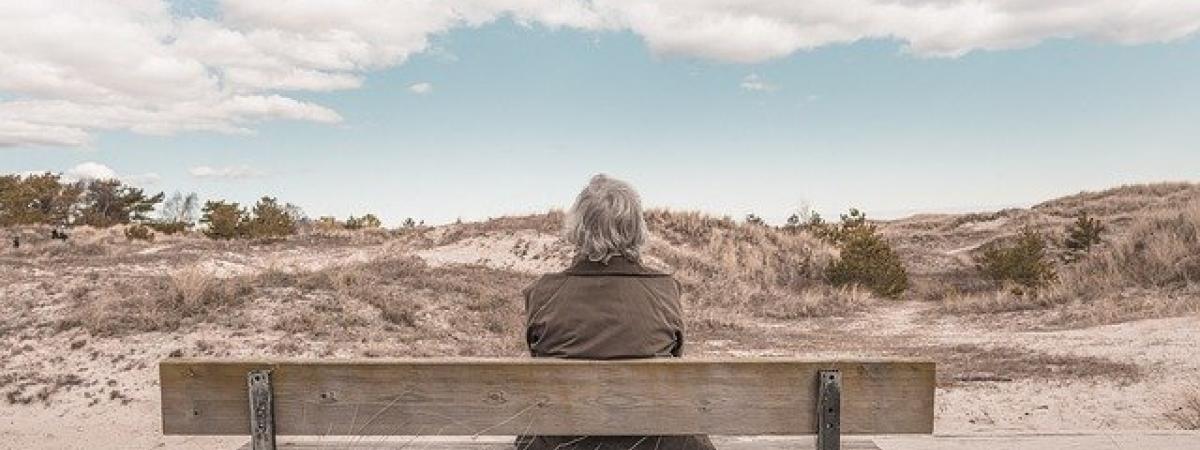Is a baby worth more than an old man?

Is your beginning worth more than your end?
Helplessness defines both ends of life: our need to be washed, fed, carried (or hoisted) in a world where nothing makes much sense, we struggle to be understood, and where human touch brings special comfort.
Why then do we care so much more for our newborns than our elderly? We rightly dote on the newborn, endlessly checking their breathing, rushing them to the doctor at the onset of a cold, worrying when they don’t finish a feed, and even steeling ourselves to use the ‘Snufflebabe nasal aspirator’ to unblock little Jonny’s nose. Yet we often abandon our elderly in a care home, showing little interest in their lack of appetite, depression or ailing memory. When they repeatedly ask the same questions we find it annoying; we find the inquisitive (and repetitive) toddler a joy.
Delicate delights?
The easy answer would be that a baby is a lot sweeter than an old person, but any tired mother will agree that such qualities are hard to see after a sleepless night or a supermarket tantrum, whilst I have met several elderly who are a delight to care for as they share their wisdom and patiently accept their lot. Shakespeare made clear that both ends of life can at times be unattractive, the infant ‘mewling and puking in the nurse’s arms’, the elderly ‘sans teeth, sans eyes, sans taste, sans everything’.
Despite their china doll appearance, babies are also not more fragile than the elderly. According to the Office for National Statistics, the mortality rate for children in England and Wales has fallen by 67 per cent, from 42 deaths per 100,000 population in 1984 to 14 in 2014. That’s a very small number: about the same number of deaths as I have witnessed in my 80-bedded care home in the last year.
When I tell people that I nurse in an old people’s home, I feel their sympathy: I would be far more respected if I was a special care baby nurse. I do not have children but let me share with you some of the ways in which I have cared for the elderly in much the way you may have cared for your newborn, and leave you to make your own conclusion about the value of this care.
Being their ears and eyes
Ivy struggles to see half of her dinner plate, John can’t see the rash developing on his arm, Ruby can’t see to change her hearing aid battery. I am their eyes. Christina lies in a coma yet I know she loves to hear news of the outside world, of Spring flowers blooming, of Royal weddings or simple words of assurance and comfort.
Being their arms and legs
When old age robs you of your mobility, life needn’t stop. We can reposition you in the bed, wash you, feed you, dress you, clean your teeth, rub your aching joints, help you to the toilet, make your cup of tea, pass your favourite book, help you from the floor, take you to the church or to the park.
For most people, the thought of this level of dependence is unbearable. Yet when it is done by carers who know that you have lost your mobility and not your mind, with dignity, humour and an acknowledgement that you are still alive inside, it can be a true demonstration of what makes us unique as humans: recognising that no man is an island entire of itself; every man a piece of the continent. When the masks of wealth, status or ability are removed, it can be liberating.
Being their voice
Just as new parents coo and babble at their babies to encourage language, we can bring a voice to the elderly. At the practical level, we clean dentures, moisten lips, help sit upright, allow time to talk, administer oxygen and suction secretions to strengthen the voice. What’s more, we will not be afraid to be their voice. I have spoken out against decisions to deny treatment or to leave inadequate staffing levels; I call for the family during the darkest hour; I alert the doctor to their decline.
Your time’s up?
Is this care not worth giving? Their life not worth living? Once you’re old, have you had your lot? It’s truly terrifying if we live in an age where we decide when someone else has received enough care and enough from life. If age determines our worth, each one of us is becoming less valuable by the day.
They’re on death’s doorstep anyway? When an infant has a terminal diagnosis, first class care becomes paramount, and the same should be true for our valued elderly.
How much do you think you’re worth?
